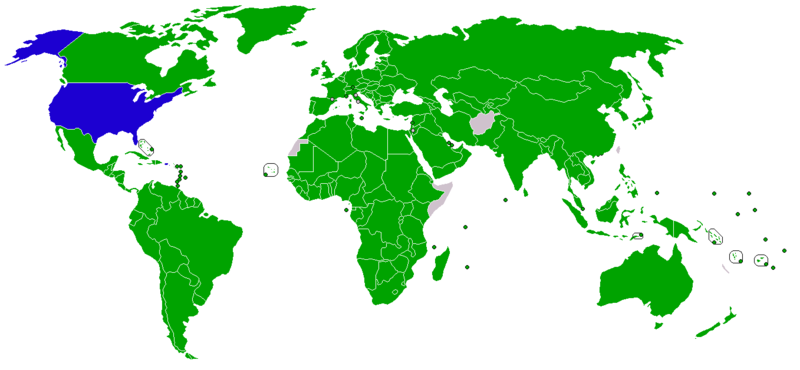Re: AVATAR IS SUCH A GOOD MOVIE OMG.
Posted: Thu Dec 16, 2010 10:44 pm
Some of the data that he used in the movie was dated.
So some of it is not accurate "today."
And yes, some of his statements should have had more information to them.
i.e. "...That the polar icecap will be completely gone..."
This is very likely to happen during the summer months, but not year round.
Also the vast majority of sea level rise is actually from thermal expansion, if I remember my paper right... about 58% actually.
But inputs from Antarctica and Greenland can have an impact, and do.
As for the Polar Bear statement, sure his animation might have been a bit off, but it is far from being totally wrong.
In the paper "Observations of mortality associated with extended open-water swimming by polar bears in the Alaskan Beaufort Sea" scientists Charles Monnett and Jeffrey Gleason observed 4 dead polar bears floating in the water.
Yes, it was after a windstorm. And they are common in the arctic.
Strictly speaking, with the populations that they were observing this is a noticeable number.
It also states that this number is probably "...almost certainly represents an underestimate
of the actual number of polar bears affected."
Sure there are much bigger factors on polar bear survival than drowning at sea.
But sea ice is the BIG factor in this, and its retreat is having an impact on polar bear populations.
So saying that polar bears drowning at sea was totally wrong is a false statement.
This is actually true.
(FYI, I live in Alaska and study marine biology)
So some of it is not accurate "today."
And yes, some of his statements should have had more information to them.
i.e. "...That the polar icecap will be completely gone..."
This is very likely to happen during the summer months, but not year round.
Also the vast majority of sea level rise is actually from thermal expansion, if I remember my paper right... about 58% actually.
But inputs from Antarctica and Greenland can have an impact, and do.
As for the Polar Bear statement, sure his animation might have been a bit off, but it is far from being totally wrong.
In the paper "Observations of mortality associated with extended open-water swimming by polar bears in the Alaskan Beaufort Sea" scientists Charles Monnett and Jeffrey Gleason observed 4 dead polar bears floating in the water.
Yes, it was after a windstorm. And they are common in the arctic.
Strictly speaking, with the populations that they were observing this is a noticeable number.
It also states that this number is probably "...almost certainly represents an underestimate
of the actual number of polar bears affected."
Sure there are much bigger factors on polar bear survival than drowning at sea.
But sea ice is the BIG factor in this, and its retreat is having an impact on polar bear populations.
So saying that polar bears drowning at sea was totally wrong is a false statement.
This is actually true.
(FYI, I live in Alaska and study marine biology)

